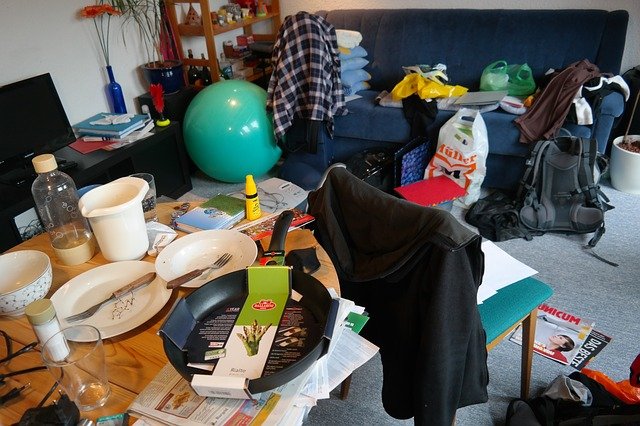Pests don’t just magically show up at your house one day. Moreover, they don’t come into your house without a reason. In most cases, it’s you that is inadvertently letting these unwelcome tenants take residence in your home, or more specifically, your habits.
This is a contributed post and does not necessarily reflect the opinions of Meet The Harris Family.
Pesky mosquitoes, cockroaches, flies, rodents, termites; all kinds of pests can bring forth detrimental effects to your family’s health, the structural integrity of your home, and the quality of life in general. The best way to fix a pest problem is usually to call a pest control service. However, to avoid pests from coming into your home in the first place, you have to avoid the habits that are making your home attractive havens for them.
If you are guilty of one or more of these habits, then you may be inadvertently attracting pests into your home:
1. Leaving food uncovered

Uncovered food is a beacon for almost all types of pests. And we’re not just talking about leaving an unfinished plate or a box of takeout on the kitchen counter–we’re also considering the food that is improperly covered in your pantry, kitchen cabinets, and other food storage areas.
That said, never leave food uncovered long enough for a pest to come sniffing around. Moreover, be sure to place all food in airtight containers, especially if they come in packaging that pests can easily tear through. Better yet, keep both opened and unopened food in airtight containers to completely eliminate the chance of pests getting into them.
2. Not taking out the trash
Pests love trash. And if you procrastinate on taking out the trash, you’re basically calling pests to your home.
The best way to avoid this, of course, is to take out the trash before bins become too full. This is especially important for trash bins that contain food and food containers, as pests use these as their primary sources of food when they can’t find anything else. If the bins are not yet full, however, keep them covered to prevent attracting pests to them. Better yet, keep your covered trash bins inside of kitchen cabinets to reduce the chances of pests detecting them.
3. Ignoring openings
Holes in the wall, gaps in the ceiling, tears on the screen door; pests can squeeze through almost any opening they can find. That said, make it a point to repair or seal any cracks, gaps, holes, and other openings that can serve as an entry point for pests.
4. Storing paper bags under the sink
You may have the habit of storing paper bags under the sink for future use. However, paper bags can actually serve as enticing habitats for cockroaches, who can use this space to lay their eggs and leave their fecal matter.
If you store paper bags under the sink, check to see if there are signs of cockroaches on them. If there are, take the paper bags outside and burn them (or just chuck them in the trash can far away from your house). From this point onward, store your paper bags elsewhere, such as in the kitchen cabinet or inside the pantry where cockroaches are unlikely to hide.
5. Neglecting indoor plants
Plants themselves can attract pests into your home, particularly mosquitoes that feed on plant nectar. However, this doesn’t mean you should get rid of your plants. As long as you maintain them properly, they shouldn’t serve as attractants for pests.
Thus, make it a point to dust your plants regularly, as well as remove any standing water that may have accumulated in their saucers. If you have plants that are attractive food sources for pests, keep them in a place out of reach or hang them from the ceiling to prevent pests from getting to them.
6. Having excessive clutter

The more clutter you have in your home, the more places there are for pests to hide, build nests, and multiply. This is especially true for garages, attics, basements, which do not see a lot of human activity as other parts of the home do.
The best way to avoid this problem is to reduce the amount of clutter in your home, either by selling, donating, or trashing items that you no longer want or need. Aside from being an extra precaution against pests, decluttering can make your home easier to clean. And when your home is easier to clean, the better you can keep pests away.
Pests are not only general nuisances, they can also transmit serious illnesses to humans and pets. Hence, if you want to avoid pests from causing havoc in your life, kick these habits to the curb and be more proactive in keeping pests outside of your home.


